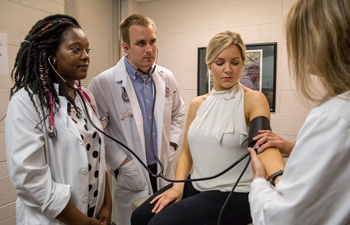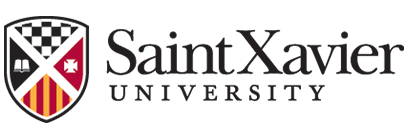
SXU Addresses the Nursing Shortage with its BSN and ABSN Programs

A nursing shortage has challenged the U.S. health care system for several years, exacerbated by the lasting effects of the COVID-19 pandemic. High patient loads and increased complexity of care needs are contributing stressors to the already fragile nursing workforce, resulting in many leaving the field. For those that remain, especially those at the bedside, the level of burnout is intense. As hospitals and nursing schools work toward creating sustainable solutions, we must consider how long nursing can continue in this way and who will be there to train those entering the field.
How Are Schools Addressing the Nursing Shortage?
SXU is working to address the issue with its Commission on Collegiate Nursing Education
(CCNE) accredited and U.S. News & World Report top-ranked undergraduate nursing degree
program, putting more registered nurses into the field and providing an education
that will guide them in reaching professional success.
SXU's nursing programs prepare students for success with mentorship from expert clinical faculty who are knowledgeable about the complexities of the health care system.
"SXU's student-centered approach provides nursing students with enhanced support that includes success coaches, peer tutors, faculty advisors, and NCLEX coaches that are available to every student in the program. SXU also offers an MSN in nursing education so we can continue to add nursing instructors to the population," Fitzgerald said.
The online MSN at SXU has ranked as a top 10 "Best Online Graduate Nursing Program" by U.S. News & World Report for ten consecutive years and ranks No. 5 in the nation for 2023.
Technology Can Alleviate the Effects of the Nursing Shortage
The SXU nursing program provides students with high-impact learning opportunities
where they learn how to work with advanced medical equipment used in today's hospitals.
Students are immersed in the health care atmosphere by recreating hospital and emergency
room settings during simulation lab experiences.
Throughout their training, SXU's student nurses complete clinical rotations in culturally diverse communities and health care agencies in the Greater Chicago area, helping to meet staffing needs within the hospitals. These rotations help students develop clinical decision-making and other essential nursing skills that will help them tackle the complex health care world after graduating.
Students also have access to the Simulation and Integrated Learning Center (SILC), which offers immersive, realistic environments for students to practice a variety of simulated scenarios and hone their nursing skills. Jennifer Pietranczyk, director of the SILC, and her team utilize simulation technology to enhance students' education.
"Students are not always able to perform actual procedures in clinical settings, but in simulation, we can utilize our equipment and the technology to recreate any experience for the students to work through, and we have the ability to repeat that as many times as needed for any number of students. Students learn best through hands-on experience more so than when they just read about it or watch someone else do it," Pietranczyk said.
"The advances in simulation provide a 'safe space' where students can practice their clinical skills without the stress of a potential adverse outcome reaching a patient, making for excellent hands-on practice," Fitzgerald added.
The Online Accelerated Bachelor of Science in Nursing (ABSN) Program at SXU: Putting
Students into the Nursing Field Sooner
With an accelerated Bachelor of Science in Nursing (ABSN) option, students can finish
their nursing degree in just 15 months, so they can get started in the field sooner.
Fitzgerald noted that the ABSN program also allows students who have already earned
bachelor's degrees in other fields to pursue a degree in nursing.
"Often, these students are already working in health care roles and can now bring that knowledge to their nursing career, offering alternative views and problem-solving skills," Fitzgerald said.
For more information on SXU's nursing programs, visit the School of Nursing and Health Sciences (SONHS) webpage.

